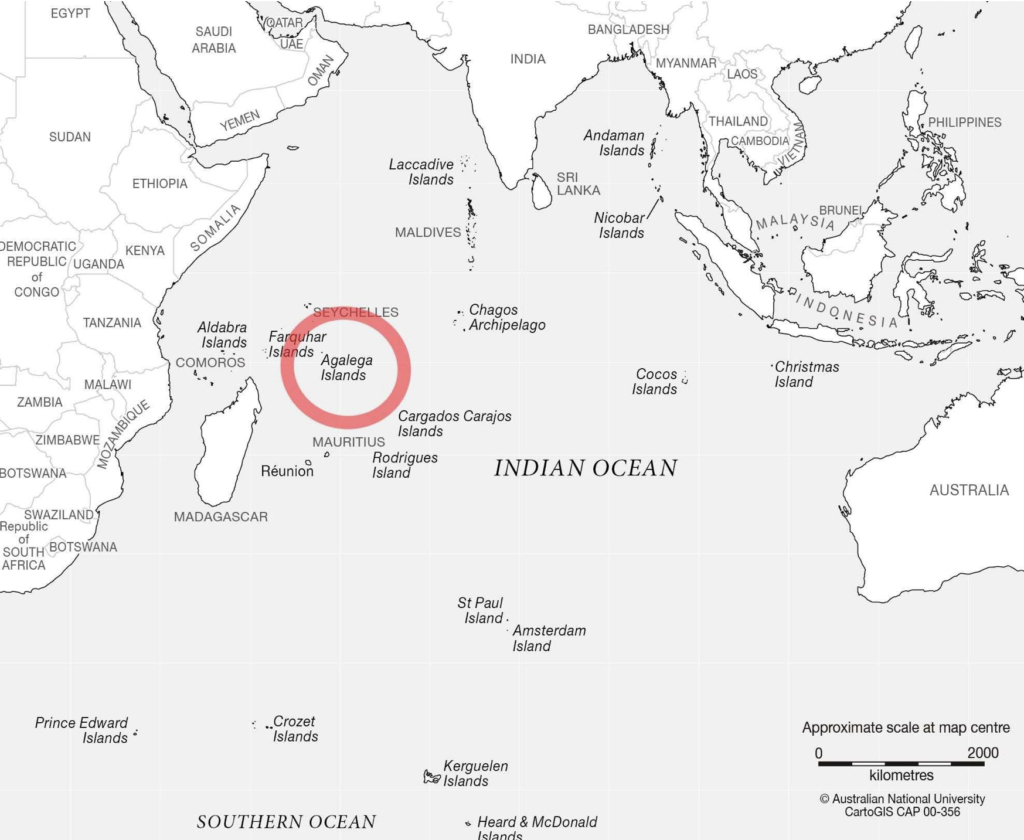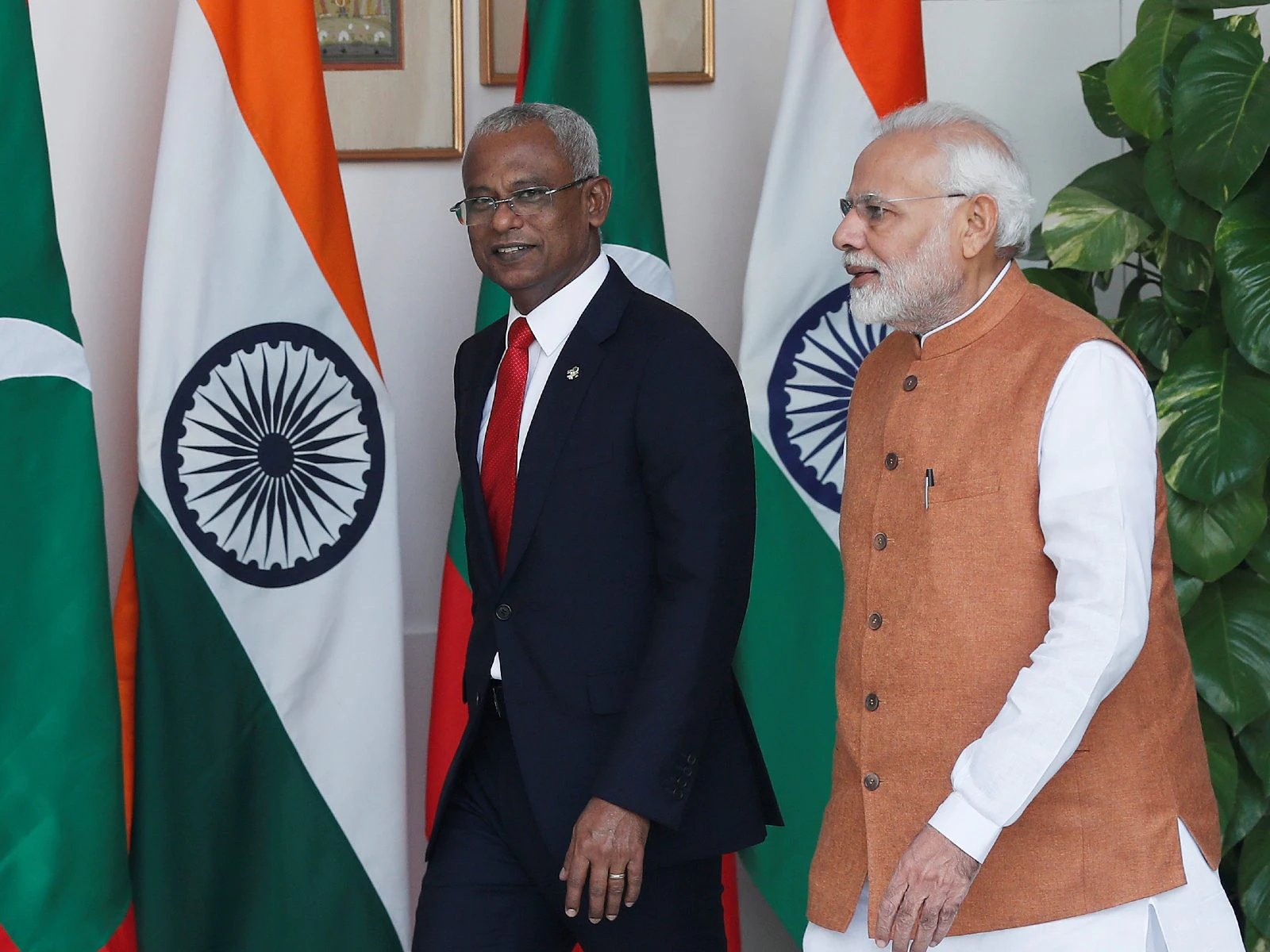The case between Mauritius and Maldives stands on the ICJ opinion on the former’s claim to the Chagos Archipelago has been the center of discussion in the island nation of Maldives following the Maldivian governments sudden decision to favor the recognition of Chagos as a part of Mauritius.
The matter came to light after it was revealed that on 22 August 2022, the President of the Maldives sent a letter to the Prime Minister of Mauritius stating that the Maldives would vote in favor of the United Nations General Assembly Resolution entitled “Advisory opinion of the International Court of Justice on the legal consequences of the separation of the Chagos Archipelago from Mauritius in 1965”.
AGO released a statement following the public criticism stating that the dispute case concerning delimitation of the maritime boundary between Mauritius and Maldives in the Indian Ocean which is currently on going in the Special Chamber of International Tribunal for the Law of the Sea (ITLOS) was a different matter and that the government agreed to vote in favor of Mauritius regarding the 2019 advisory opinion by the International Court of Justice.
However, the governments sudden change in the ICJ’s advisory opinion and the secrecy around the matter has lead to the government being heavily scrutinized from local political parties and the public.
While the opposition coalition has filed an emergency motion calling the government to maintain it’s stand against Mauritius in the ICJ advisory opinion, ruling coalition partner and Leader of Jumhooree party and parliament member from Maamigili constituency Gasim Ibrahim has also criticized the governments decision calling it an orchestrated move from a higher power.
In a statement released by Qasim Ibrahim, he stated that letting go of any part of Maldives on the wish of the ”big brother” cannot be accepted and that the disputed area must be resolved through an equidistant policy.
Although he did not mention who the ”big brother” was in his statement, recently it has been synonymously used to describe India following the current governments pro-India policy.
Although India has never commented openly on the subject matter of the Chagos Islands boundary, India has been a key developmental partner for Mauritius as well.
In a 2021 report by the Qatar-based Al Jazeera’s ‘investigative unit’, citing ‘satellite imagery, financial data, and on-the-ground evidence’, claimed that the US $250 million ‘air-strip and jetty for military use’ on Agaléga were for India to expand its ‘influence towards western Africa’.
It was touted as a part of India’s SAGAR initiative, aimed at ensuring ‘Security and Growth for All in the Region’.
Although both the Mauritian and Indian governments are denying it, documents and witness accounts Al Jazeera claimed that they had obtained indicate the construction of various infrastructure purposed for military activities, especially surveillance.
According to media reports, this is a move by India to move swiftly but quietly to ensure its project in the Mauritius does not run into trouble after facing resistance over placing its helicopters in the Maldives and the virtual cancellation of its project to develop the Assumption Island in the Seychelles in 2018.
India sought access to the Agaléga islands in 2015 to develop as an air and naval staging point for surveillance of the south-west Indian Ocean – in a sense redolent of facilities other nations operate, such as the joint US-UK base at Diego Garcia.

Satellite imagery shows major airfield and port developments are well underway, reportedly worth some US$87 million. Comparing the most recent images from Google Earth to the same location as seen in 2014 shows a new 3000-metre runway – capable of hosting the Indian Navy’s new Boeing P-8I maritime patrol aircraft – and considerable apron overshadows the existing airfield in the middle of the island.
India has long had a close security relationship with Mauritius, anchoring its prominent role in the south-west Indian Ocean. The relationship is bolstered by ethnic ties and a shared Hindu religion with many Mauritians. This has led commentators to describe Mauritius as the “Little India” of the south-west Indian Ocean – evidenced in part by Indian funding of major infrastructure projects, and provision of lines of credit.
This base on Agalega will cement India’s presence in the south-west Indian Ocean and facilitate its power projection aspirations in this region.
Given the facts of India’s interest in Mauritius to strengthen their military presence against China in the Indian Ocean and the similarities in their relationship with the current Maldivian government, the Maldivian governments sudden change to vote in favor of the United Nations General Assembly Resolution entitled “Advisory opinion of the International Court of Justice on the legal consequences of the separation of the Chagos Archipelago from Mauritius in 1965” has been potentially to make the ”big brother” happy.
When reached out to by The Times of Addu, a diplomatic veteran who wishes to remain anonymous pointed out that there is no apparent change in the matter based on which the government should change it’s stand on the ICJ’s advisory opinion and no reason why the government must vote in favor of Mauritius as well.
The diplomate also pointed out that Maldives had voted against the resolution in the 2019 vote at the UN along with the United States, Hungary, Israel and Australia voted against the resolution, while 56 countries abstained from the vote. 116 nations were in favor of the motion, which sets a six-month deadline for Britain to withdraw from the Chagos island chain and for the islands to be reunified with neighboring Mauritius.
The foreign ministry had also stated in a statement after the 2019 vote that the Maldives could not support any proposal that diminishes the country’s territory as laid out in the 2008 constitution and domestic law. The stance reflected foreign policy followed since 1990 by successive governments, the ministry noted. In 2017, the Maldives was among 15 countries that opposed seeking a ruling from the International Court of Justice, the highest court in the UN system.
Explaining the reason behind Maldives’ decision to vote no at the UN General Assembly in New York in 2019, Maldives Permanent Representative Thilmeeza Hussain told that without due process and clarity on the legal implications of the contested matter, Maldives is not in a position to support the resolution solely as a matter of decolonization.
She had also told that for the Maldives, any uncertainty concerning the issue of Chagos archipelago will have serious implications for the sovereignty, territorial integrity and to the wider security of the Indian Ocean region and that it was for these reasons the Maldives voted no, on the resolution in 2019.





